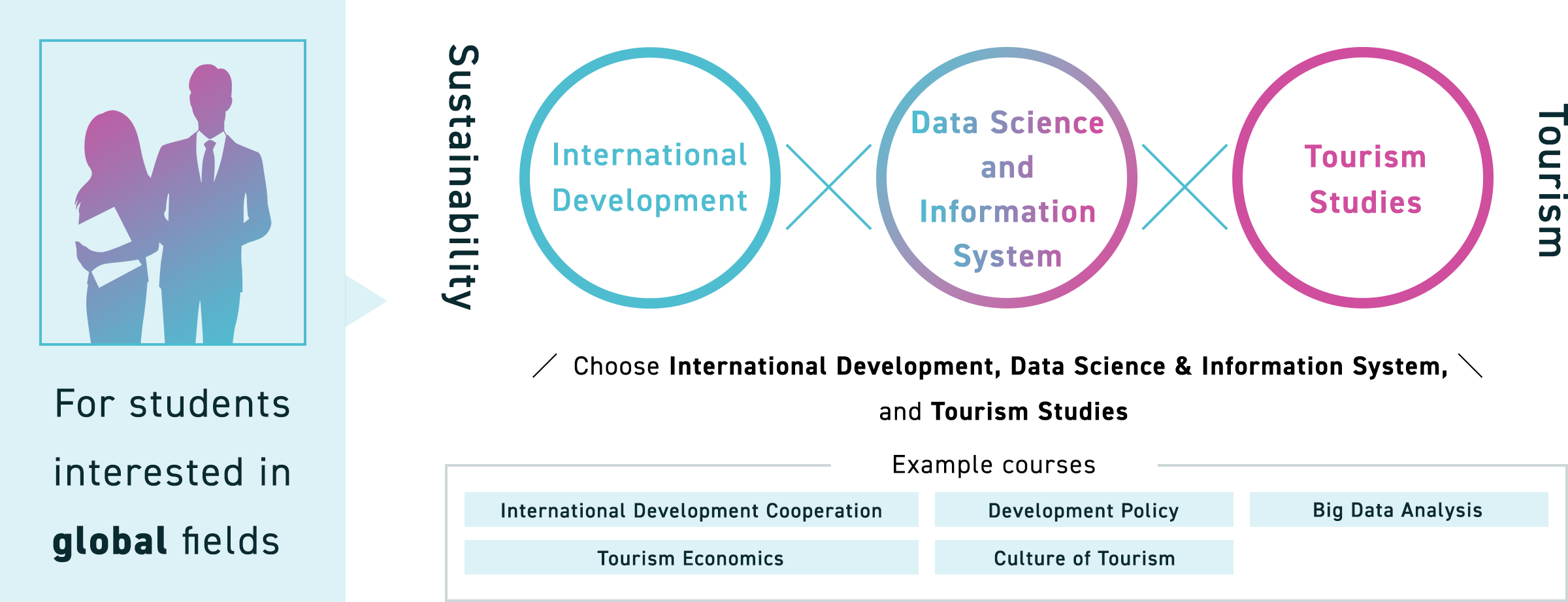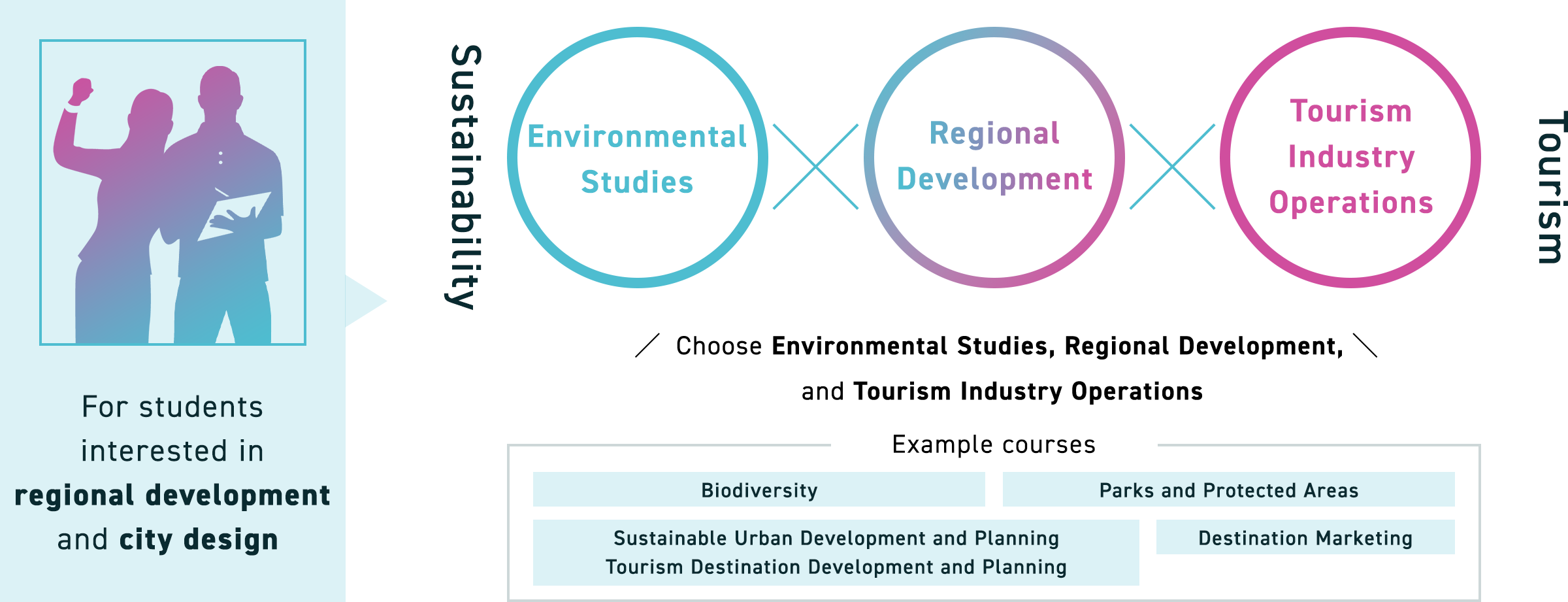CURRICULUM
CURRICULUM
Common Education Subjects
An evolved, university-wide learning program that ties in with and supports undergraduate studies APU will further develop its exceptionally global environment and education to cultivate basic skills that are sought by today’s society. We strengthened university-wide training, which includes the first-year program utilizing international education on-campus housing, the introduction of ICT and data science education, and leveraging networks on and off campus. We thus promote learning within each college as well as studying issues that connect with the world today.
Curriculum Alignment Matrices (CAM)
ST utilizes Curriculum Alignment Matrices (CAM) to give an overview of the expectations for what students should learn in each subject within the ST program. The left-most row of the matrix indicates the given subjects. Enlisted in the upper columns of the matrix are the nine Learning Objectives and three Learning Goals they are aligned with.
When planning your course registration,
please refer to the CAM linked below to find out more about what you will learn in each subject.
Curriculum Outline
The ST curriculum provides an outline of the subjects that can be taken and the requirements for graduation. The curriculum that a student will study under depends on the year they enter the university. Except in the case when a student switches colleges, students will study under the same curriculum until they graduate. New students enrolled in spring 2023 or later will follow the 2023 curriculum.
The subjects of College of Sustainability and Tourism are arranged in order starting from foundational subjects. In the curriculum outline, you can check which courses can be taken from which year of study.
| First year | Second year | Third year | Fourth year | ||||
|---|---|---|---|---|---|---|---|
| Common Education Subjects | Language | English ST (standard track) |
|
|
|||
| English AT (advanced track) |
|
|
|||||
| Japanese |
|
|
|
||||
| AP Language |
|
|
|||||
| Specific Subjects |
|
|
|
||||
| Common Liberal Arts | APU Literacy |
|
|
|
|||
| Introduction to Major Studies Group |
|
|
|||||
| Global Citizens Foundation |
|
|
|
||||
※Required Subject
| First year | Second year | Third year | Fourth year | |||
|---|---|---|---|---|---|---|
| ST Major Education Subjects | Tourism Subjects | Tourism Studies |
|
|
||
| Tourism Industry Operations |
|
|
||||
| Hospitality Operation |
|
|
||||
| Sustainable Society Subjects | ||||||
| Environmental Studies |
|
|
|
|||
| Resource Management |
|
|
|
|||
| International Development |
|
|
||||
| ST Common Subjects | ||||||
| Regional Development |
|
|
|
|||
| Social Entrepreneurship |
|
|
|
|||
| Data Science & Information System |
|
|
||||
| Special Lecture |
|
|||||
| Academic Skills Subjects |
|
|
||||
| Off-Campus Program Subjects |
|
|
||||
| Seminar・Final Results Subjects |
|
|
||||
※Required Subject
Syllabus
The APU Syllabus provides an outline and schedule of the courses available at APU. Students are able to read the syllabus and finalize a course plan before registering for their courses.
*APU has incorporated “Course Numbering” as a way of indicating factors such as where a subject is situated within the curriculum, as well as how the curriculum is systemized. “Course Numbers” can now be found in the syllabus of every course/subject to allow students to identify with relative ease the subject/course which Area of Study it falls into, etc.
Career after graduation
An original curriculum that allows students to deepen their knowledge by combining the areas they wish to study from a group of nine specialized subjects that cover the four elements necessary for a sustainable society: environment, society,
economics and culture. By acquiring knowledge through theory and practice, they will be able to develop applicable skills and aim for a variety of careers.
For example, the following combination:
Human resources who are active in the global field
Target Fields:
International organizations, international financial institutions, general trading companies, etc.
Required skills:
Ability to grasp issues on a global scale, involve stakeholders, formulate policies at international organizations, and implement problem-solving.

Human resources who can play an active role at the regional level in Japan and overseas
Target Fields:
National/local civil servants, real estate developer, railway company, tourist area development corporations, etc.
Required skills:
Ability to objectively grasp the issues faced by the region and to promote regional development by utilizing the natural and cultural resources of the region.










